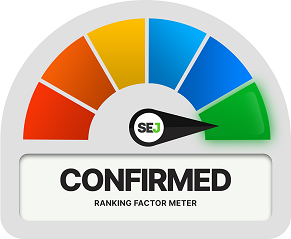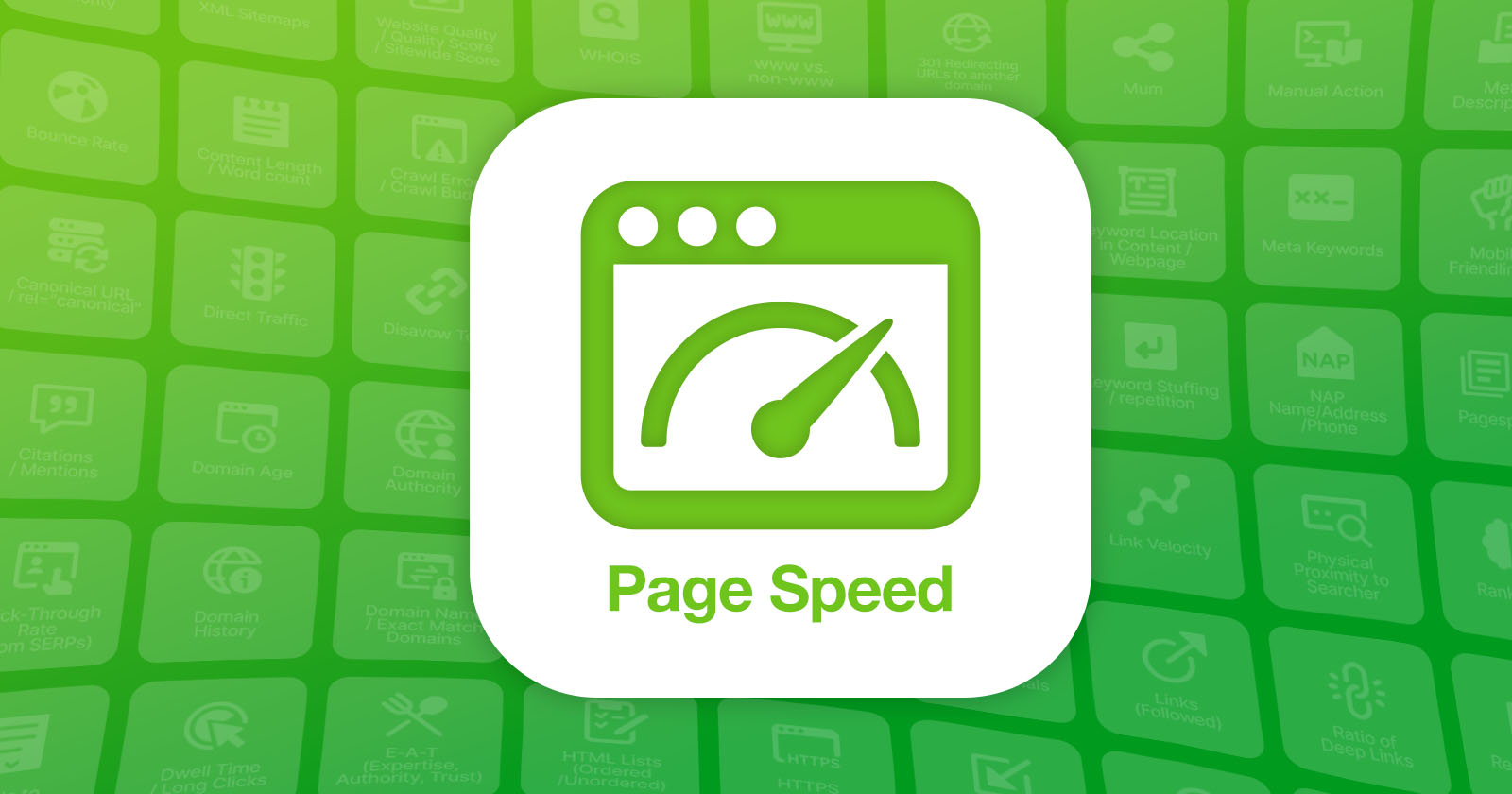Web developers often spend significant time optimizing page speed to improve user experience.
In the past, Google gave higher rankings to faster-loading websites than slower ones.
This leads to the question: Does page speed impact search rankings today? And if so, how important is it?
In this chapter, we’ll examine the relationship between page speed and SEO, assessing the extent to which speed continues to influence search results.
[Recommended Read] → Ranking Factors: Systems, Signals, and Page Experience
The Claim: Page Speed Is A Ranking Factor
Pages that loaded quickly were thought to get a boost in Google search rankings.
Speed is measured by how fast a page loads after clicking a link in search results, which is now evaluated by Core Web Vitals metrics.
Google’s PageSpeed Insights tool measures page load speed, further fueling claims that speed impacts rankings.
These assumptions stem from knowing that Google wants to serve pages with a good user experience, so fast pages are considered an advantage.
It’s more satisfying when pages load instantly after clicking, which was the idea behind Accelerated Mobile Pages (AMP).
A search results page with lightning-fast links sounds ideal but could exclude slower, more relevant pages.
That’s where the argument for page speed as a ranking factor falls short.
Google repeatedly says relevance is the top ranking factor. If fast pages got an automatic boost, they could outrank more relevant content that better answers the query, disadvantaging searchers.
Speed at the expense of quality does a disservice to users.
There are claims for and against page speed impacting rankings, with much debate in SEO. Let’s examine the evidence to clear up misunderstandings about page speed.
Prior Evidence For Page Speed As A Ranking Factor
Google has long considered website speed a factor in search engine rankings, announcing in April 2010 that its algorithm would begin incorporating site speed when determining search result rankings.
As stated by Google at the time:
“Like us, our users place a lot of value in speed – that’s why we’ve decided to take site speed into account in our search rankings.”
This initial change was applied to desktop search results. It took nearly another decade before, in July 2018, Google eventually made page speed a ranking factor for mobile search results.
A company announcement states:
“Users want to find answers to their questions quickly and data shows that people really care about how quickly their pages load.
The Search team announced speed would be a ranking signal for desktop searches in 2010, and as of this month (July 2018), page speed will be a ranking factor for mobile searches too.”
Current Evidence Against Page Speed As A Ranking Factor
In April 2023, Google refreshed its documented ranking systems page and removed the “page experience” system as one of the ranking systems. But “page experience” gained its own page in the documentation, and Google was careful to clarify that the algorithms do directly reward good page experience signals.
Still, removing “page experience” from the ranking systems page was an unexpected change within the SEO community. Page speed is part of page experience, so what does this mean for speed as a ranking factor?
This switch came on the heels of Google’s “helpful content update,” which aims to better reward pages with experience, expertise, authoritativeness, and trustworthiness based on semantic analysis instead of quantitative metrics.
In the page experience documentation, Google clarifies that there are many signals impacting page experience. Load times may or may not be weighted within this system, so page speed is still a ranking factor, but it may not be highly impactful all the time.
Google’s core philosophy has always been that relevance is most important – and fast load times don’t necessarily equate to high-quality, helpful content. Better content that’s slightly slower may well outrank worse content that loads faster. This doesn’t mean page speed is unimportant, either. Page experience is part of the way users interact with content, and the algorithms reward good page experience factors like speed.
With the rise in mobile browsing and improved bandwidth, page speed may be less of a differentiator compared to a decade ago when slower connections were more common.
It’s clear that the changes were a matter of organization, and not of any actual algorithm changes.
[Ranking Factors 2023] Download the free ebook + cheat sheet →
Yes, Page Speed Is Still A Ranking Factor

Page speed is still a confirmed ranking factor for Google’s search results as of April 2023. It may not have a strong impact all the time, but it’s a signal that goes into evaluating page experience.
While page speed remains vital for user experience, it may not directly influence search rankings if the content has issues.
Relevance remains the number one ranking factor, according to Google. Page experience is important insofar as it impacts a user’s ability to engage with your website, and speed is part of that.
Featured Image: Paulo Bobita/Search Engine Journal






![[SEO, PPC & Attribution] Unlocking The Power Of Offline Marketing In A Digital World](https://www.searchenginejournal.com/wp-content/uploads/2025/03/sidebar1x-534.png)